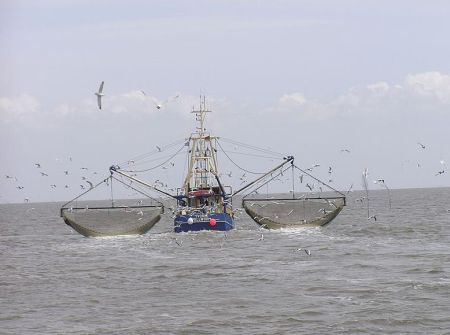
The fishing guilds from Cadiz and the Andalusian autonomous government have rejected the proposed reform of the Common Fisheries Policy (CFP) by the European Union. They have argued it will have a negative impact on the sector and will lead to the disappearance of artisanal fisheries in Cádiz.
Small fishermen believe that the reform discriminates the artisanal fleet and disregards the social and economic influence of the sector at the expense of environmental requirements
Commissioner of Fisheries Maria Damanaki’s proposal will define the new guidelines for EU fisheries due to come into force before the end of 2012.
But, if applicable, the guilds say it will mean the short-term dismantling of the artisanal fleet in the region, a sector that holds about 600 ships and more than 3,000 jobs, Diario de Cádiz reported.
The delegate of Agriculture and Fisheries Board in Cádiz, Juan Antonio Blanco, met with representatives of the guilds of the province to analyse the text of the reform.
The guilds try to reach consensus on interests, prepare arguments and propose common strategies in an effort to modify the reform, which must still be discussed in Parliament in Brussels and in the European Council sphere.
After the meeting, the head of the guild of Tarifa and representative of the sector in Andalusia, Manuel Peinado, ironically urged Damanaki to go to the Convention on International Trade of Endangered Species (Cites) and require that fishermen should be declared “endangered species.”
Meanwhile, the delegate of Agriculture and Fisheries Board in Cádiz pointed out there are six items that will affect the artisanal sector, according to Europa Press.
First of all, he said the commitment to environmental sustainability proposed by the Commission “is also a commitment undertaken by fishermen and the Board,” but it should include the socioeconomic aspects of fisheries. He also criticized the fact that “the Commission does not consider fishing as an economic resource.”
In addition, he indicated that the guilds reject the inclusion of individual transferable quotas (ITQ), as it “harms the smallest fishermen who have fewer economic resources.”
Another questionable issue is the differentiation between artisanal coastal fishing and industrial fishing only in terms of vessel size, regardless of other considerations.
The European reform intends to consider as industrial fishing those vessels over 12 meters long so vessels exceeding this measure will be disregarded by EU aid.
By Silvina Corniola(FIS)
We use cookies to improve your experience. By continuing to use our site, you accept our Cookies, Privacy Policy,Terms and Conditions. Close X